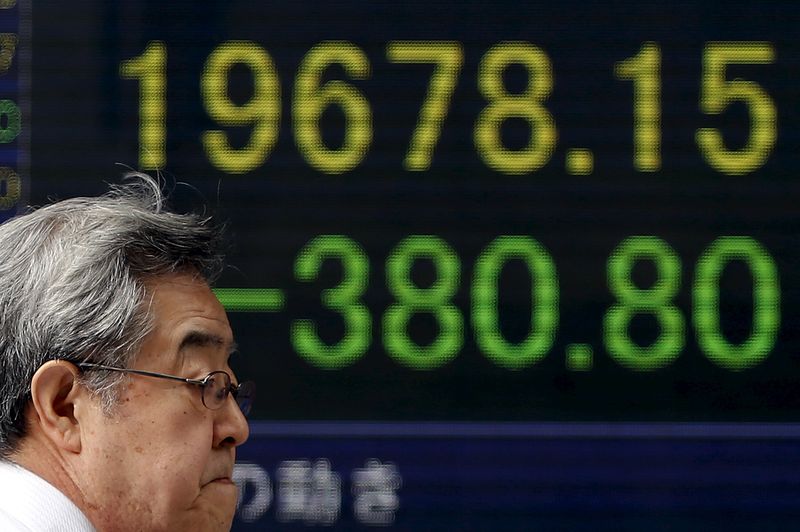This post was originally published on this site

Investing.com – Asia Pacific stocks were down on Tuesday morning, following a sell-off in its global counterparts. Concerns over surging raw material prices like crude oil, increasing inflation, and impacted economic recovery from COVID-19, also continue.
Japan’s Nikkei 225 slid 3% by 9:54 PM ET (1:54 AM GMT) and South Korea’s KOSPI fell 2%.
In Australia, the ASX 200 was down 0.73% ahead of the Reserve Bank of Australia’s policy decision, due later in the day. The Reserve Bank of New Zealand will hand down its decision a day later, with the Reserve Bank of India’s decision following on Friday.
Hong Kong’s Hang Seng Index was down 0.63%.
Chinese markets are shut for a holiday. However, the country’s property sector continues to be on investors’ radars, with Fantasia Holdings Group Co. Ltd. (HK:1777) failing to repay a $205.7 million bond that was due Monday. Fantasia Holdings is the latest developer to face financial woes alongside China Evergrande Group (HK:3333).
Global shares have hit pause on September’s rally, and have dropped more than 5% since then. The U.S. Federal Reserve’s decision to begin asset tapering earlier than usual, a slowdown in the global economic recovery, and China’s regulatory tightening on the property sector have all contributed to this slowdown. The debate also continues in the U.S. on whether to increase the debt ceiling, with President Joe Biden warning that the government is at risk of breaching the legal limit in October.
“We think there is going to be more volatility in these markets. It’s not going to be the same sort of ‘risk-assets-always-go-up-over-time’ story that maybe happened in the rebound from COVID-19,” State Street (NYSE:STT) macro strategist Emily Weis told Bloomberg.
St. Louis Fed President James Bullard also suggested that elevated price pressures could be changing the mentality of businesses and consumers by making them more accustomed to higher inflation. The latest U.S. jobs report, including non-farm payrolls, will be released on Friday.
In cryptocurrencies, Bitcoin traded around the $49,000 mark and was attempting to breach the $50,000 for the first time since El Salvador rolled it out as legal tender in September 2021.


